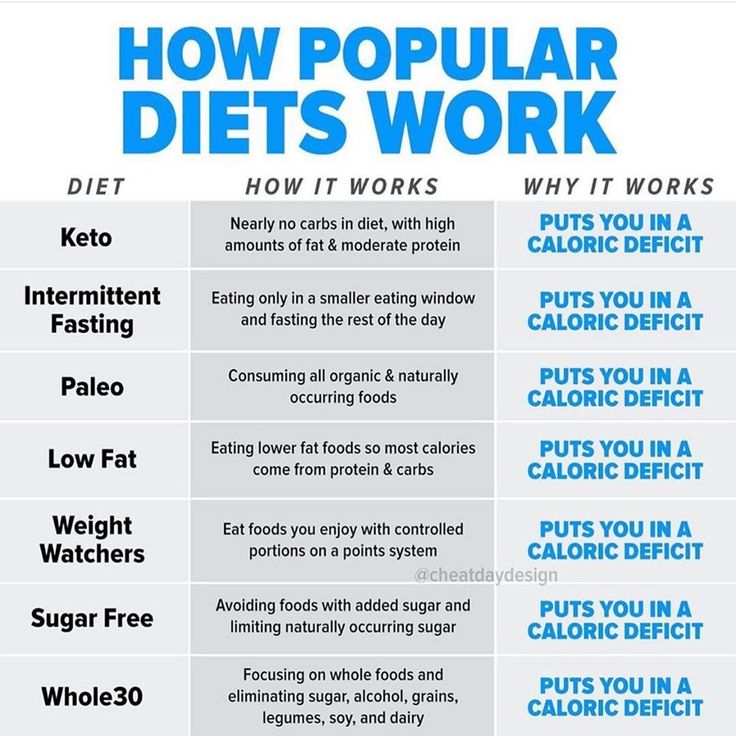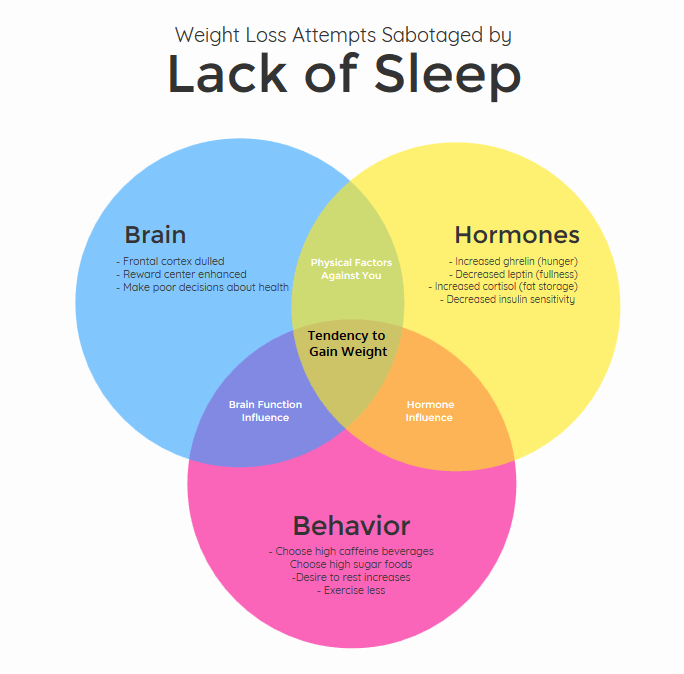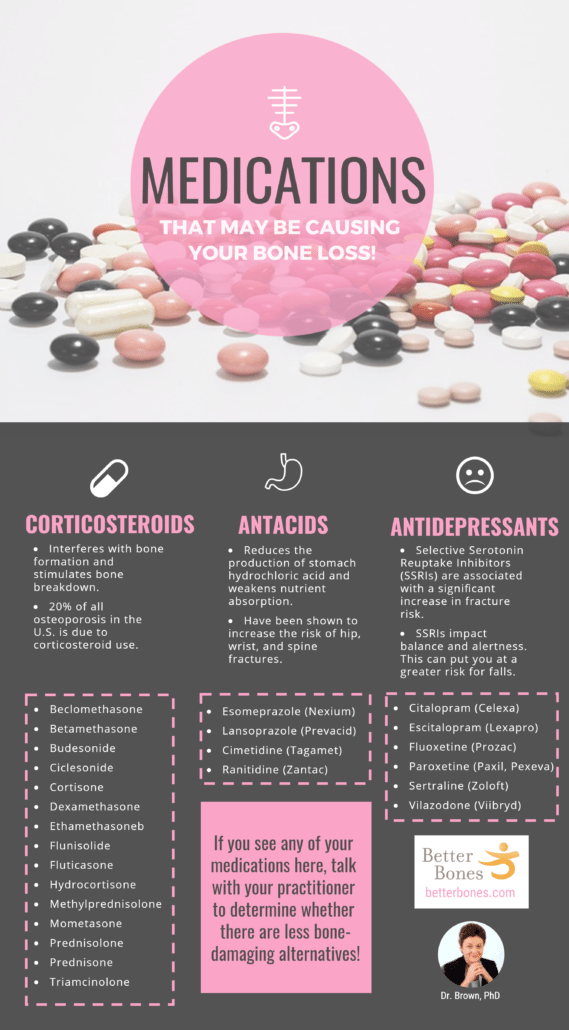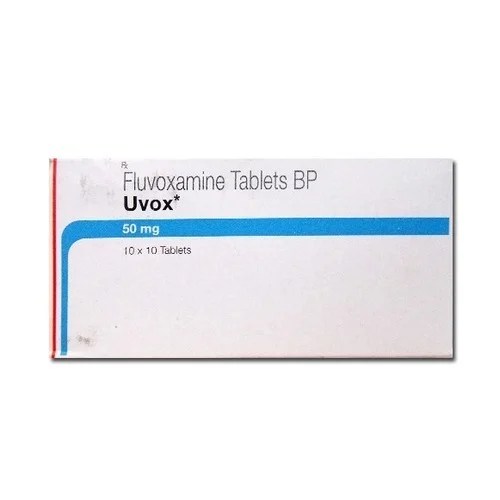Does celexa cause weight loss
Celexa Weight Gain: What You Should Know
If you’re one of the more than 260 million people experiencing depression, your doctor may prescribe Celexa.
This medication is a brand-name version of a drug called citalopram hydrobromide, a type of antidepressant known as a selective serotonin reuptake inhibitor, or SSRI.
Weight gain is a common concern for people who are prescribed SSRIs.
Celexa could cause you to gain weight, lose weight, or have no change in your weight at all.
In this article, I’ll tell you what Celexa is, the conditions it can help, and how it works.
I’ll explain why some people gain weight while taking this medication, and list some of its other possible side effects.
I’ll also talk about why some patients experience changes in their weight when they’re on this medication.
Finally, I’ll tell you when to talk to your doctor.
What is Celexa?
Celexa is a brand name of the antidepressant drug citalopram hydrobromide.
It is approved by the Food and Drug Administration (FDA) for the treatment of major depressive disorder (MDD).
It comes as a tablet or liquid that is taken by mouth, usually once per day.
Feeling Down?
Take our free assessment and learn about your options.
Get Started
Celexa uses
Your doctor may prescribe Celexa for depression.
They may also recommend it for one of the following off-label uses:
- Obsessive-compulsive disorder (OCD)
- Panic disorder
- Social anxiety disorder (SAD)
- Separation anxiety disorder
- Premenstrual dysphoric disorder (PMDD)
- Binge eating disorder
- Post-traumatic stress disorder (PTSD)
How Celexa works
Celexa is a selective serotonin reuptake inhibitor (SSRI).
SSRIs work by boosting the serotonin levels in your brain.
Serotonin is a type of neurotransmitter, a molecule used by your nervous system to carry messages between neurons, between the nervous system and muscles, or between the nervous system and the brain.
Under normal circumstances, serotonin conveys a message to a cell receptor, and then it is reabsorbed back into the body to be recycled.
When someone takes an SSRI, the medication inhibits the “reuptake” process, increasing the body’s level of serotonin and giving it more opportunities to communicate.
Serotonin helps humans think, learn, and remember.
It also helps stabilize mood, balance emotions, regulate appetite, and improve sleep, among other things.
Healthcare clinicians aren’t sure whether low levels of serotonin cause major depression and other mental illnesses or vice versa.
We do know that using medications and other treatments to boost and rebalance serotonin levels can positively impact a patient’s mental well-being and quality of life.
SSRIs help your body recycle the serotonin you have so that more is available to your brain.
Because Celexa only selectively affects serotonin and not other neurotransmitters, it has fewer side effects and can support a balanced mood response.
Celexa and Weight Gain
Antidepressants can affect metabolism, appetite, and other factors that can affect your weight, either in gain or loss.
Your weight may also stay the same. Each person responds differently.
Celexa, like other SSRIs, may have these effects.
Celexa can also change the way that your body responds to glucose and lipid metabolism—how your body converts carbohydrates for energy, and how it uses fat for fuel.
Celexa is not guaranteed to make you gain a lot of weight.
However, if you have been eating less because depression has suppressed your appetite, or if you are more active in response to antidepressant treatment, you may have more of a desire for food.
Weight gain is not always bad. If you are concerned about the potential for weight gain, or notice weight gain that bothers you while taking Celexa, talk to your doctor.
What the research says
Research on other medications in the same class of drugs as Celexa found that weight gain of typically less than three pounds occurred within the first 12 weeks and remained steady during the course of treatment.
People who were underweight gained more than people who were overweight at the time of treatment.
In a study that followed people who had prescribed antidepressants for two years, patients taking citalopram gained an average of 5.9 pounds during that time.
This was similar to non-smoking patients who took fluoxetine (Prozac), the most commonly prescribed SSRI.
People who take SSRIs like Celexa and who have other unhealthy lifestyle patterns are more likely to experience weight gain.
Smoking, being inactive, and eating a diet with a lot of processed foods carried the most risks for weight gain while taking antidepressants.
If weight is already a major health concern, your doctor may prescribe bupropion (Wellbutrin) if it’s safe for you.
Bupropion is more commonly associated with weight loss in overweight or obese patients who require antidepressant treatment.
Wellbutrin, however, is not always safe to use and can worsen anxiety—so it is not a good choice for people with anxiety.
It’s always a good idea to discuss the risks and benefits with your doctor first.
Common Side Effects of Celexa
Celexa may cause some common, mild side effects.
Some of these will go away as your body adjusts to the medication.
Common side effects of Celexa include:
- Nausea
- Diarrhea
- Constipation
- Vomiting
- Stomach pain
- Heartburn
- Decreased appetite
- Weight loss
- Increased sweating
- Feeling thirsty
- Frequent urination
- Insomnia
- Drowsiness
- Excessive tiredness
- Yawning
- Weakness
- Muscle or joint pain
- Dry mouth
- Decreased sex drive
- Sexual dysfunction
- Runny nose
- Heavy menstrual periods
If any of these side effects become severe or don’t go away, tell your doctor.
In rarer cases, you may experience more severe, serious side effects.
These include:
- Chest pain
- Shortness of breath
- Dizziness
- Fainting
- Fever
- Sweating
- Confusion
- Fast or irregular heartbeat
- Severe muscle stiffness or twitching
- Hallucinations
- Loss of coordination
- Rash
- Hives or blisters
- Itching
- Difficulty breathing or swallowing
- Swelling of the face, throat, tongue, lips, eyes, hands, feet, ankles, or lower legs
- Hoarseness
- Unusual bleeding or bruising
- Unsteadiness
- Problems with concentration or memory
- Seizures
If you experience any of these side effects, seek medical attention immediately or call 9-1-1.
Depression and Weight Changes
Depression can affect body weight in many ways.
For some, it will lead to an increase in weight gain from emotional eating.
Sometimes food causes a dopamine release that momentarily makes you feel more positive.
As the effects wear off, your brain becomes conditioned to want more food, even if you are not hungry.
In people who were already overweight or obese before experiencing depression, weight could be a contributing factor to low mood.
In some cases, receiving guidance on balancing body weight can help address the underlying cause of depression, but this is not broadly true for everyone experiencing depression.
In other people,depression can suppress the appetite and lead to unintended weight loss instead of weight gain.
The way that your body responds to depression and weight changes depends on what triggered your depression, whether or not the situation or trigger is ongoing, and many other factors, including your lifestyle, genetics, support system, and other health conditions.
Antidepressants can lead to weight changes, but if your doctor recommends one, they have determined that the benefits of treating your depression outweigh the slight potential for weight change.
How to Take Celexa
Citalopram (Celexa) comes in tablet or liquid form.
- Tablet dosage: 10, 20, or 40 mg
- Liquid dosage: 2 mg per mL, typically dosed to 10, 20, or 40 mg per serving
Celexa is taken once per day, either in the morning or at bedtime.
If you miss a dose of Celexa, take it as soon as you remember.
If you are close to your next dose, skip the missed dose and resume your normal schedule after that.
Do not double up on Celexa doses.
Celexa absorption is not affected by food, so you don’t have to take it on an empty stomach.
Celexa Precautions
Celexa and other antidepressants come with serious warnings, known as “black box” warnings.
While rare, they have the potential to increase the risk for suicidal ideation or self-harm.
If you or someone you care for is taking Celexa, be aware of the following warning signs:
- Agitation, aggression, or hostility
- Increased or worsening anxiety
- Panic attacks
- Irritability
- Insomnia
- Impulsiveness
- Unusual changes in behavior
- Suicidal thoughts or discussion
- Restlessness
- Manic behavior
Inform healthcare providers about any of these, or other concerns, immediately.
Do not stop taking Celexa without talking to your doctor.
Stopping antidepressant medication suddenly can be dangerous.
Citalopram needs to be tapered to wean you off slowly, which will decrease side effects and lower the risk of a serious relapse.
Celexa is not safe for some people who take other medications or have certain health conditions.
Tell your doctor if any of the following apply to you:
- You are taking monoamine oxidase inhibitors (MAOIs)
- You are taking pimozide
- You are 60 or older
- You have liver problems
- You have a bleeding disorder or take anticoagulants
- You are taking other medications to treat depression, anxiety, or attention deficit hyperactivity disorder
Feeling Down?
Take our free assessment and learn about your options.
Get Started
When to See a Doctor
If you are experiencing feelings of depression or low mood, talk to your doctor. If you are concerned about weight gain with antidepressants, let your doctor know.
They can identify non-medication-based ways to address depression and make recommendations for medication that will support you with the lowest potential for side effects.
If you’re having a mental health emergency, call 911 or go to the nearest emergency room. You can also get free 24/7 support from a suicide and crisis expert by calling or texting 988. If you’d prefer to chat online, you can chat with a suicide and crisis expert by visiting the Lifeline Chat.
How K Health Can Help
Think you might need a prescription for Celexa (citalopram)?
K Health has clinicians standing by 24/7 to evaluate your symptoms and determine if citalopram is right for you.
Get started with our free assessment, which will tell you in minutes if treatment could be a good fit. If yes, we’ll connect you right to a clinician who can prescribe medication and have it shipped right to your door.
If yes, we’ll connect you right to a clinician who can prescribe medication and have it shipped right to your door.
Frequently Asked Questions
Will Celexa make you lose weight?
Celexa is not a weight loss drug, and is not associated with a common pattern for weight loss. In some, it may lead to a modest weight gain during the course of treatment.
Is weight gain a side effect of citalopram?
In a study that followed people who had prescribed antidepressants for two years, patients taking citalopram gained an average of 5.9 pounds during that time. Your doctor will help you determine if the benefits of citalopram outweigh the potential for weight gain.
Which antidepressants cause the most weight gain?
Everyone responds differently to medication, but the antidepressants commonly associated with a higher potential for weight gain are tricyclic antidepressants (TCAs) and monoamine oxidase inhibitors (MAOIs). Among SSRIs, paroxetine is associated with more weight gain than other medications of this kind.
How common is weight gain with citalopram?
In a study that followed people who had prescribed antidepressants for two years, patients taking citalopram gained an average of 5.9 pounds during that time. Another study found that patients increased their weight by around 0.2% after 6 months of taking the medication.
K Health articles are all written and reviewed by MDs, PhDs, NPs, or PharmDs and are for informational purposes only. This information does not constitute and should not be relied on for professional medical advice. Always talk to your doctor about the risks and benefits of any treatment.
This information does not constitute and should not be relied on for professional medical advice. Always talk to your doctor about the risks and benefits of any treatment.
K Health has strict sourcing guidelines and relies on peer-reviewed studies, academic research institutions, and medical associations. We avoid using tertiary references.
-
Depression. (2021).
https://adaa.org/understanding-anxiety/depression -
Citalopram.
 (2022).
(2022).
https://medlineplus.gov/druginfo/meds/a699001.html -
Citalopram. (2021).
https://www.ncbi.nlm.nih.gov/books/NBK482222/ -
Celexa (citalopram hydrobromide).
 (2012).
(2012).
https://www.accessdata.fda.gov/drugsatfda_docs/label/2012/020822s042,021046s019lbl.pdf -
Metabolism in adipose tissue in response to citalopram and trimipramine treatment--an in situ microdialysis study. (2008).
https://pubmed.ncbi.nlm.nih.gov/17692337/ -
An electronic health records study of long-term weight gain following antidepressant use.
 (2014).
(2014).
https://pubmed.ncbi.nlm.nih.gov/24898363/ -
Changes in body weight during pharmacological treatment of depression. (2011).
https://pubmed.ncbi.nlm.nih.gov/20716398/ -
SSRI antidepressant use potentiates weight gain in the context of unhealthy lifestyles: results from a 4-year Australian follow-up study.
 (2017).
(2017).
https://www.ncbi.nlm.nih.gov/pmc/articles/PMC5629701/ -
Long-Term Weight Change after Initiating Second-Generation Antidepressants. (2016).
https://www.ncbi.nlm.nih.gov/pmc/articles/PMC4850471/ -
Depression, emotional eating and long-term weight changes: a population-based prospective study.
 (2019).
(2019).
https://ijbnpa.biomedcentral.com/articles/10.1186/s12966-019-0791-8 -
Diet, Obesity, and Depression: A Systematic Review. (2021).
https://www.ncbi.nlm.nih.gov/pmc/articles/PMC7999659/ -
Depression and Obesity: Analysis of Common Biomarkers.
 (2020).
(2020).
https://www.ncbi.nlm.nih.gov/pmc/articles/PMC7348907/ -
Weight gain and antidepressants. (2000).
https://pubmed.ncbi.nlm.nih.gov/10926053/
Is There a Link, Weight Loss Tips & More
Celexa and Weight Gain: Is There a Link, Weight Loss Tips & MoreMedically reviewed by Dena Westphalen, Pharm. D. — By University of Illinois — Updated on March 27, 2019
D. — By University of Illinois — Updated on March 27, 2019
Overview
Weight gain is a common concern for people considering antidepressant drugs, particularly selective serotonin reuptake inhibitors (SSRIs) such as escitalopram (Lexapro) and sertraline (Zoloft).
Celexa, the brand-name version of the drug citalopram, is another type of SSRI. It affects different people in different ways. It could cause you to have a small gain or a small loss in body weight, or it could cause no weight change at all.
If you do gain weight, it could be the result of many different factors. Here’s what you need to know.
Medications used to treat depression can affect your appetite and your metabolism. In some cases, these effects can cause you to gain or lose weight.
Celexa has been associated with slight weight gain, but it’s thought that the drug itself doesn’t cause this effect. Rather, the weight increase is likely due to improved appetite from taking the drug. A better appetite can cause you to eat more, leading to increased body weight.
On the other hand, Celexa could also reduce your appetite, leading to slight weight loss. Studies have demonstrated both effects. It’s hard to say whether you should expect weight gain or weight loss.
In a 2014 study of more than 22,000 patient records, amitriptyline, bupropion (Wellbutrin SR, Wellbutrin XL), and nortriptyline (Pamelor) caused less weight gain than citalopram over the course of 12 months.
Keep in mind that weight changes due to taking antidepressants are typically small, usually within a few pounds. If Celexa has an effect on your weight at all, whether it’s weight gain or weight loss, it’ll likely be minor.
If you think Celexa is causing you to gain weight, don’t stop taking it without talking to your doctor. Stopping Celexa abruptly can cause problems such as anxiety, moodiness, confusion, and trouble sleeping.
Your doctor can work with you to taper your dosage to reduce or prevent side effects.
Keep in mind that weight gain can be caused by other factors besides the drug you’re taking.
For instance, depression itself can lead to weight changes. Some people with depression have no appetite, while others eat more than usual. It can be hard to tell if weight changes are caused by depression or the medication used to treat it.
Many other factors can also affect your weight. Talk to your doctor if you’re doing any of the following things:
- Adopting unhealthy habits, such as:
- having a sedentary lifestyle, or spending most of the day sitting, lying down, or doing little physical activity
- not exercising
- consuming lots of foods or drinks that have high amounts of sugar or fat
- Taking certain medications, such as:
- birth control pills
- corticosteroids such as prednisone (Rayos) or methylprednisolone (Medrol)
- antipsychotics used to treat bipolar disorder, schizophrenia, and depression
- certain medications used to treat diabetes, including insulin
- Having certain health conditions and mental health concerns, such as:
- hypothyroidism
- heart failure
- digestive system problems
- chronic infection
- dehydration
- eating disorders such as bulimia
- stress
- Experiencing changes in women’s hormones caused by pregnancy or menopause
If you’ve gained weight and are concerned about it, try these tips for improving your diet and getting more exercise in your day:
- Cut back on sweets and sugary drinks.

- Replace high-calorie foods with tasty fruits and vegetables.
- Give yourself smaller portions and eat more frequently throughout the day.
- Eat slowly.
- Take the stairs instead of the elevator.
- Get outside and take a walk.
- Start an exercise program with your doctor’s guidance.
It’s always a good idea to get professional guidance when trying to lose weight.
Be sure to check with your doctor before starting any physical activity. If you need help managing your diet, ask your doctor for a referral to a registered dietitian. For more suggestions on how to lose weight safely, check out these additional weight loss strategies.
If you gain or lose a considerable amount of weight after starting Celexa, talk to your doctor to discuss what may have caused the change. A gain of 10 percent or more of your body weight could be cause for concern, especially if it occurs over just a few weeks.
If your doctor thinks the weight gain is related to your use of Celexa, ask if lowering your dosage or trying a different antidepressant could help.
If your doctor doesn’t think your weight gain is related to your use of Celexa, discuss what might be the real cause. If you’re making healthy lifestyle choices but still gaining unwanted weight, be sure to let your doctor know.
In any case, feel free to talk to your doctor about your weight concerns and to ask any questions you may have. These might include:
- Do you think my weight gain was caused by taking Celexa?
- If so, should I take a lower dose or switch to a different medication?
- What advice do you have to help me lose weight?
- Can you refer me to a registered dietitian for help with my diet?
- What are some safe ways for me to get more active?
Q:
Is it true that exercise can help with depression?
Anonymous patient
A:
Exercise is a great tool for the body. It has a number of documented positive effects including releasing chemicals that make your brain and body feel good. Regular exercise can help to alleviate several symptoms of depression and can sometimes be successful on its own in treating mild seasonal depressive symptoms. If you feel that you have depression symptoms that are interrupting your life, you should speak with your doctor to see if exercise alone or a combination of exercise and medication can help to treat your symptoms.
Regular exercise can help to alleviate several symptoms of depression and can sometimes be successful on its own in treating mild seasonal depressive symptoms. If you feel that you have depression symptoms that are interrupting your life, you should speak with your doctor to see if exercise alone or a combination of exercise and medication can help to treat your symptoms.
Dena Westphalen, PharmDAnswers represent the opinions of our medical experts. All content is strictly informational and should not be considered medical advice.
Last medically reviewed on March 27, 2019
How we vetted this article:
Healthline has strict sourcing guidelines and relies on peer-reviewed studies, academic research institutions, and medical associations. We avoid using tertiary references. You can learn more about how we ensure our content is accurate and current by reading our editorial policy.
- Blumenthal SR, et al.
 (2014). An electronic health records study of long-term weight gain following antidepressant use. DOI:
(2014). An electronic health records study of long-term weight gain following antidepressant use. DOI:
10.1001/jamapsychiatry.2014.414 - Celexa – citalopram hydrobromide tablet, film coated. (2019).
dailymed.nlm.nih.gov/dailymed/drugInfo.cfm?setid=4259d9b1-de34-43a4-85a8-41dd214e9177 - Mental health medications. (2016).
nimh.nih.gov/health/topics/mental-health-medications/index.shtml
Our experts continually monitor the health and wellness space, and we update our articles when new information becomes available.
Share this article
Medically reviewed by Dena Westphalen, Pharm.D. — By University of Illinois — Updated on March 27, 2019
Read this next
Does Cymbalta Cause Weight Gain?
Medically reviewed by Aleah Rodriguez, PharmD
READ MORE
Everything You Need to Know About Antidepressants That Cause Weight Gain
Medically reviewed by Alan Carter, Pharm.
 D.
D.If your doctor prescribed you an antidepressant, these drugs can have many benefits on your mental health. But that won't stop you from worrying about…
READ MORE
Celexa vs. Lexapro
Medically reviewed by Aleah Rodriguez, PharmD
Celexa and Lexapro both treat depression. They’re similar, but there are a few differences between them. See if these differences affect your options…
READ MORE
Celexa and Alcohol: Potential ProblemsREAD MORE
Managing Antidepressant Sexual Side Effects
Medically reviewed by Alan Carter, Pharm.D.
Sexual side effects, like erectile dysfunction, are common complaints of taking antidepressants. Most prescription antidepressants are part of a drug…
READ MORE
Unipolar Depression Explained — Plus Tips to Get Support
Medically reviewed by Nicole Washington, DO, MPH
Unipolar depression often refers to major depression, also called clinical depression.
 Learn the signs and how it compares to bipolar disorder.
Learn the signs and how it compares to bipolar disorder. READ MORE
New Study Debunks Old Theory That Depressed People Are Just More Realistic
New research raises doubts about a decades-old theory that depressed people are more realistic.
READ MORE
Task Force Recommends Depression, Anxiety Screenings for Children
A federal task force is recommending children between the ages of 8 and 18 be screened for anxiety while children 12 to 18 be screened for depression
READ MORE
More People May Experience Seasonal Affective Disorder This Year
Experts theorize that a greater number of people may experience Seasonal Affective Disorder this year. Here's how to spot the signs.
READ MORE
Experts Have Beef with Study Linking Depression and Vegetarian Diet
Health experts raise questions about new research that suggests vegans and vegetarians experience depressive episodes twice as often as meat-eaters.

READ MORE
Do weight loss drugs affect blood pressure and reduce the effects of high blood pressure (hypertension, hypertension)?
What is high blood pressure (hypertension)?
Blood pressure is a measure of the force your heart uses to pump blood around your body. It is usually expressed as two values: the pressure when your heart pushes blood out (systolic pressure) and the pressure when your heart rests between beats (diastolic pressure). Blood pressure is considered high if systolic pressure is over 140 and/or diastolic pressure is over 90, often referred to as "140 over 90" (140/90) and measured in millimeters of mercury (mmHg). As we age, the risk of high blood pressure increases.
Hypertension can increase a person's risk of serious long-term health problems such as heart attack or stroke. Lowering blood pressure in people with hypertension reduces the number of patients with heart and vascular disease (cardiovascular disease), resulting in reduced mortality and cardiovascular disease.
Weight and hypertension
Guidelines for the management of hypertension recommend maintaining a healthy weight and, if necessary, reducing it. Some people may take medication to help with weight loss.
Why did we prepare this Cochrane Review?
Medicines licensed for use in weight loss in the US and Europe include orlistat and naltrexone in combination with bupropion. Another combination, phentermine with topiramate, is licensed in the US only. We wanted to find out whether weight loss medications have a long-term effect on blood pressure and whether they can reduce the undesirable effects of high blood pressure on people's health.
What have we done?
We searched for studies on the effects of taking weight loss medications in people with high blood pressure. We were interested in how these drugs affect blood pressure and body weight. We also wanted to find out how many patients experienced side effects, how many developed cardiovascular disease, and whether there were any deaths.
We also wanted to find out how many patients experienced side effects, how many developed cardiovascular disease, and whether there were any deaths.
We searched for randomized controlled trials in which the decision about the intervention people received was made at random. This type of study tends to provide the most reliable evidence about the effects of treatment.
We assessed the reliability of the evidence found. We considered the following factors: how the studies were conducted, how many people participated in them, and whether their results were consistent with each other.
Search date: we have included evidence published up to March 2020.
What we found out
We found six studies involving 12,724 patients with high blood pressure (mean age 46-62 years). The studies were conducted in the USA (3 studies) and Europe (3 studies) and lasted from 6 to 28 months.
All studies compared the effects of taking a weight loss drug with the effects of taking a fake drug (placebo).
What are the results of our survey?
Orlistat may reduce weight and possibly lower blood pressure (4 studies; 2058 people).
Phentermine plus topiramate may reduce weight and blood pressure (1 study; 1305 people).
The combination of naltrexone and bupropion appears to reduce weight but does not appear to lower blood pressure (1 study; 8283 people).
One study looked at risk of death and major adverse cardiovascular effects; it found no difference between treatment with naltrexone plus bupropion and placebo at two years.
People taking weight loss medications reported more adverse effects than those taking placebo. The most common adverse effects were digestive problems (for orlistat and phentermine with topiramate), dry mouth, and skin tingling or numbness (for naltrexone with bupropion).
How reliable are these results?
Results were obtained from a small number of studies. Some studies had few events for some measures (outcomes) that we were interested in.
Our confidence in how orlistat and naltrexone in combination with bupropion affect weight loss and blood pressure is moderate. However, the results may change if more evidence becomes available.
We are less certain about the effects of phentermine with topiramate; adverse effects of orlistat, as well as the risk of adverse cardiovascular events associated with naltrexone in combination with bupropion. These results are likely to change as more evidence becomes available.
Terminals
Some weight loss medications reduce weight and blood pressure in people with high blood pressure, but may cause unwanted effects. We did not find sufficient evidence that taking weight loss medications can reduce mortality and cardiovascular disease.
Translation notes:
Translation: Golyuchenko Olga Anatolyevna. Editing: Ziganshina Lilia Evgenievna. Russian translation project coordination: Cochrane Russia, Cochrane Geographic Group Associated to Cochrane Nordic, For questions related to this translation, please contact us at: [email protected]
How to lose weight? With XENICAL it's easy
In August, "APTEKA Weekly" told its readers about XENICAL (orlistat), which is designed to reduce excess body weight (No. 31 (252), No. 33 (254). This drug has a fundamentally new mechanism of action.
Many have already used the information line "TIME TO LOSE WEIGHT" (tel.: 8-800-504-45-50; calls within Ukraine are free) and consulted with a specialist on the problem of reducing excess body weight. phone calls Today we bring to your attention the answers to the most frequently asked questions that arise when using XENICAL.0005
|
WHY DOES PEOPLE GET BETTER?
The main reason for this is that more calories enter the body with food than are consumed, that is, a person eats more than he needs. Fats are an important source of calories in food, since burning 1 g of fat releases 2 times more energy than burning 1 g of proteins or carbohydrates.
Fats contained in food are absorbed by the body only after they are broken down in the intestines by a special pancreatic enzyme - lipase. Lipase enters the intestines with the start of a meal and acts so effectively that all fats that come with food are usually absorbed by 100%. Therefore, as a solution to the problem of reducing excess body weight, scientists from the F. Hoffmann-La Roche chose lipase neutralization.
HOW IS XENICAL DIFFERENT FROM FOOD SUPPLEMENTS?
The fundamental difference between this drug and food supplements is that XENICAL is not a mixture of various substances, the mechanism of action of which is unknown, but a MEDICINE containing one known active ingredient orlistat with a fundamentally new, well-studied mechanism of action.
Most nutritional supplements have only a temporary effect of reducing body weight, either by acting on the hunger center in the brain, or by increasing heat transfer, or by acting as a diuretic or laxative. Therefore, after stopping the intake of nutritional supplements, body weight increases rapidly, reaching the same levels.
Therefore, after stopping the intake of nutritional supplements, body weight increases rapidly, reaching the same levels.
WHAT “DANGERS” ARE LIKE FOR A PERSON WHO DECIDES TO LOSE WEIGHT AND STARTED TO TAKE XENICAL?
1. After starting XENICAL, some patients consume more carbohydrates and proteins, as a result of which the calorie content of food increases significantly. At the same time, they believe that "with XENICAL you can eat everything and in unlimited quantities." This is a delusion that can nullify all the efforts of the patient. XENICAL inhibits the absorption of fats, but does not affect the metabolism of proteins and carbohydrates. Unfortunately, the “ideal drug” for weight loss has not yet been created, taking which the patient could not limit himself to food.
2. Experience has shown that some patients who started taking XENICAL stop taking the drug after 2-3 weeks. In most cases, this is due to the fact that people expect to get results quickly. Unfortunately, rapid weight loss without harm to health is simply impossible - what has accumulated over the years cannot disappear in a week. The decrease in body weight when taking XENICAL occurs gradually (on average by 1.5–4 kg per month).
Unfortunately, rapid weight loss without harm to health is simply impossible - what has accumulated over the years cannot disappear in a week. The decrease in body weight when taking XENICAL occurs gradually (on average by 1.5–4 kg per month).
3. When taking XENICAL, unsplit fat molecules remain in the lumen of the small intestine and mix with feces. An increase in the content of fats in the feces may be accompanied by such phenomena as the passage of gases, an increase in defecation, the stool becomes "fatty". These reactions are not caused by XENICAL itself, but by fats that are not absorbed in the intestines. These phenomena disappear when the amount of fat in the diet is limited.
WHAT HOSPITALS CAN HELP PATIENTS WITH OVERWEIGHT?
Patients who are determined to lose weight need advice and ongoing support from an experienced specialist. The doctor will draw up an individual plan for reducing body weight, give advice on how to properly keep a "food diary", which is necessary for the patient for self-control.
 Its effect is based on the suppression of fat absorption in the intestine by blocking lipase. Unsplit fat molecules are not absorbed and excreted from the body.
Its effect is based on the suppression of fat absorption in the intestine by blocking lipase. Unsplit fat molecules are not absorbed and excreted from the body.  Weight loss reduces risk factors for the development of diseases such as diabetes mellitus, atherosclerosis, arterial hypertension.
Weight loss reduces risk factors for the development of diseases such as diabetes mellitus, atherosclerosis, arterial hypertension. 












